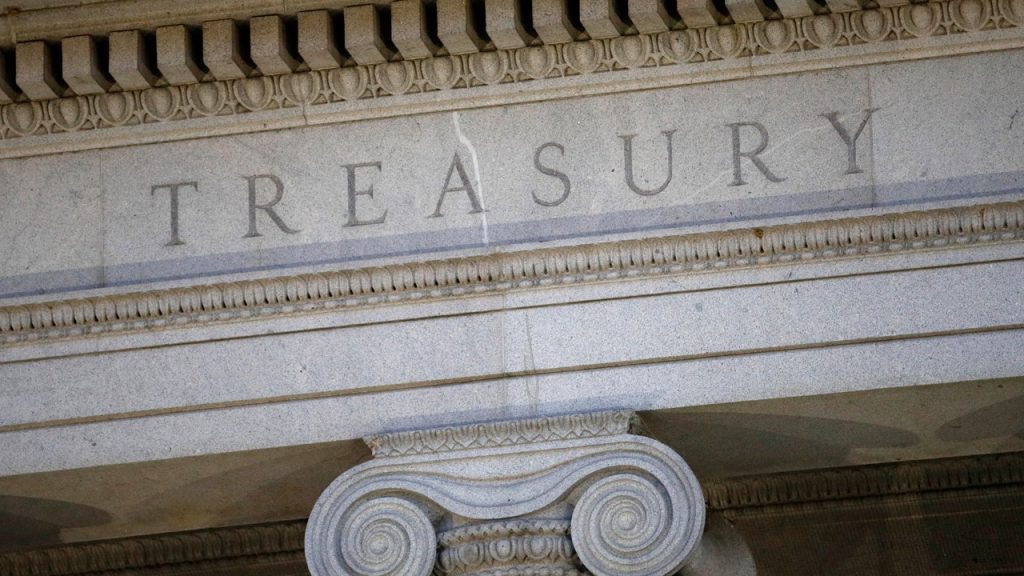The United States imposed new sanctions on companies and individuals connected to Russia’s weapons development program, Chinese entities accused of helping Moscow find workarounds to earlier penalties, and individuals linked to the death of Kremlin opposition leader Alexei Navalny. The Senate approved legislation banning imports of Russian uranium, highlighting U.S. efforts to disrupt Russia’s war in Ukraine. Treasury Secretary Janet Yellen said the sanctions will disrupt Russia’s military industrial base and evasion networks supplying weapons components. The penalties target importers of cotton cellulose and nitrocellulose, Russian government entities tied to chemical and biological weapons programs, and workers at the penal colony where Navalny died. Russian President Vladimir Putin has condemned earlier U.S. and Western sanctions as illegitimate.
The Biden administration named 16 entities in China and Hong Kong involved in Russian procurement workarounds, warning Chinese officials to not support Russia’s war or face significant consequences. Companies in China, Azerbaijan, Belgium, Slovakia, Turkey, and the United Arab Emirates were accused of helping Russia acquire technology and equipment from abroad. The sanctions aim to block these companies from using the U.S. financial system and prevent American citizens from engaging in transactions with them. Despite Chinese claims of not providing military assistance to Russia, Beijing has maintained strong economic ties with Moscow alongside other countries as the West imposes sanctions.
President Biden signed a $95 billion war aid measure that includes rushing weapons to Ukraine, Israel, Taiwan, and other global hot spots. The upcoming ban on Russian uranium imports is expected to impact Russian revenues by at least $1 billion. The U.S. had previously banned Russian oil imports following the invasion of Ukraine but had not implemented a similar ban on uranium despite calls from lawmakers. The legislation also frees up $2.7 billion to boost domestic uranium production, with Wyoming Sen. John Barrasso calling the import ban a victory that will help defund Russia’s war machine, revive American uranium production, and stimulate investments in America’s nuclear fuel supply chain.
The sanctions and import bans come as Russia continues its invasion of Ukraine, now entering its third year. The actions by the departments of Treasury and State target Russia’s military-industrial base, chemical weapons programs, and entities in third countries helping Russia acquire weapons components. Biden’s administration also seeks to disrupt support for Russia’s war machines by targeting importers of materials used for producing explosives, entities tied to chemical and biological weapons programs, and workers involved in Navalny’s death. Putin has criticized U.S. and Western sanctions as illegitimate, maintaining his anti-sanctions stance.
Yellen previously visited China to warn officials against providing material support for Russia’s war and state they will face consequences if they do. The administration named 16 entities in China and Hong Kong involved in Russian procurement workarounds. While China denies providing military assistance to Russia, it has strong economic connections with Moscow, India, and other countries as Western sanctions continue. Companies in China, Azerbaijan, Belgium, Slovakia, Turkey, and the United Arab Emirates were found to be assisting Russia in acquiring technology and equipment from abroad. The sanctions aim to restrict them from using the U.S. financial system and bars American citizens from transactions with them.
The U.S. Senate approved legislation banning imports of Russian uranium, impacting Russian revenues by at least $1 billion and freeing up $2.7 billion for domestic uranium production. Lawmakers hailed the import ban as a victory to defund Russia’s war efforts, revitalizing American uranium production and boosting investments in the nuclear fuel supply chain. West Virginia Sen. Joe Manchin criticized U.S. reliance on Russian uranium as unconscionable and enabling Putin to finance his unlawful war in Ukraine. President Biden signed the $95 billion war aid measure to provide urgent military assistance to Ukraine, Israel, Taiwan, and other regions facing global tensions.


